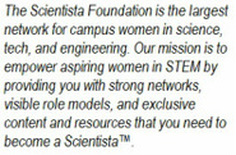|
By Courtney Thomas
You spent weeks perfecting each word of your abstract and you finally get the email you have been waiting for: “Your poster presentation has been accepted in the technical program for the upcoming meeting.” From preparing data for your poster, to practicing your presentation, to attending the conference itself, there is a lot of hard work that goes into getting ready for any conference. Here are some tips for preparing to present your first poster:
1. Know your audience Do your research about the conference. Is it a large, national conference that brings together scientists of many smaller fields (like a national meeting for a scientific society)? Is it a smaller conference that is much more focused and has attendees in a more focused set of sub-fields? Understanding who will be at the conference will help you to decide what to include on your poster or presentation, and how to present the information. If the conference is catered towards experts in a particular field, you do not need to go into so much detail in background and experimental setup. If the conference brings together people from many different backgrounds, you will want to define the scope of your work and provide context for the experiments that can be understood by a wide audience. A great way to see if you have explained well is to ask a friend for feedback. If the conference is a large national conference, present to a friend who is outside of your academic department. 2. Polish your research “elevator pitch” The idea behind an elevator pitch is that you should be able to describe the major points in the time it takes you to ride the elevator to the top floor with the head honcho of your company. In other words, create a narrative that highlights the most important points of your research in 60-90 seconds. In this way, you can gauge a person’s interest in your work, and explain more if they ask questions. 3. Dress the part If you can, talk to someone who has been to the conference before. Do most people dress in business attire, or is the conference more informal? If in doubt, err on the side of dressier, with business casual being a good idea for most conference presentations. Most importantly, choose something that makes you feel confident so that you can stand tall when you present your research. 4. Talk to your neighbors Conferences are a great time to network also with your peers! Talk to the other presenters around you. You never know where you might meet your next collaborator! 5. Take business cards Poster sessions are a great place to network! If you have a business card with you, then you have an easy way for anyone who is interested in your research to get your contact information. If you do not have any, see if your department has the perforated business card templates for a printer and make some yourself! Be sure to include your name, status (Bachelor’s Candidate, Master’s Candidate, Ph.D. Candidate) and your email address. 
About the Author
Courtney Thomas is currently working as a postdoctoral researcher in Cancer Biology at the Ecole Polytechnique Fédérale de Lausanne in Switzerland. She received a B.S. in Chemistry from Furman University in 2007, and a PhD in Inorganic Chemistry from UCLA in 2012. While at UCLA, she developed a passion for communicating scientific ideas and for scientific outreach. She has developed scientific lectures for ages 5-adult, educational handouts, and a hands-on lab-based workshop to introduce high school students to academic research. When she’s not working in the lab, Courtney enjoys cooking, photography, and exploring Europe. Comments? Leave them below!
0 Comments
Your comment will be posted after it is approved.
Leave a Reply. |
Education BlogAbout ScientistaSubscribe!NEW!New PostsWhat's HotClick to set custom HTML
You Might Like...
Connect With UsLatest tweets |
The Scientista Foundation, Inc. All Rights Reserved © 2011-2021 | Based in NY | [email protected]
The Network for Pre-Professional Women in Science and Engineering
The Scientista Foundation is a registered 501(c)(3) -- Donate!
The Network for Pre-Professional Women in Science and Engineering
The Scientista Foundation is a registered 501(c)(3) -- Donate!


 RSS Feed
RSS Feed









